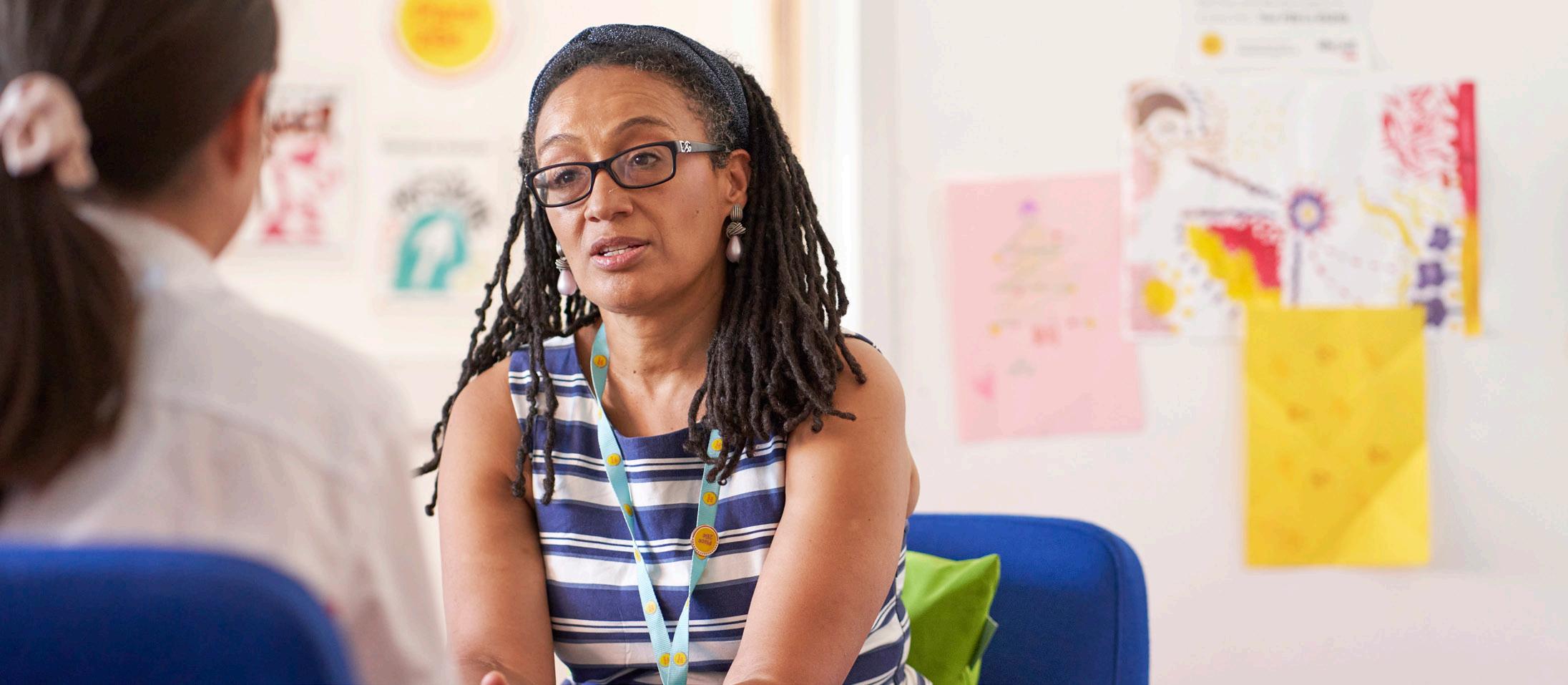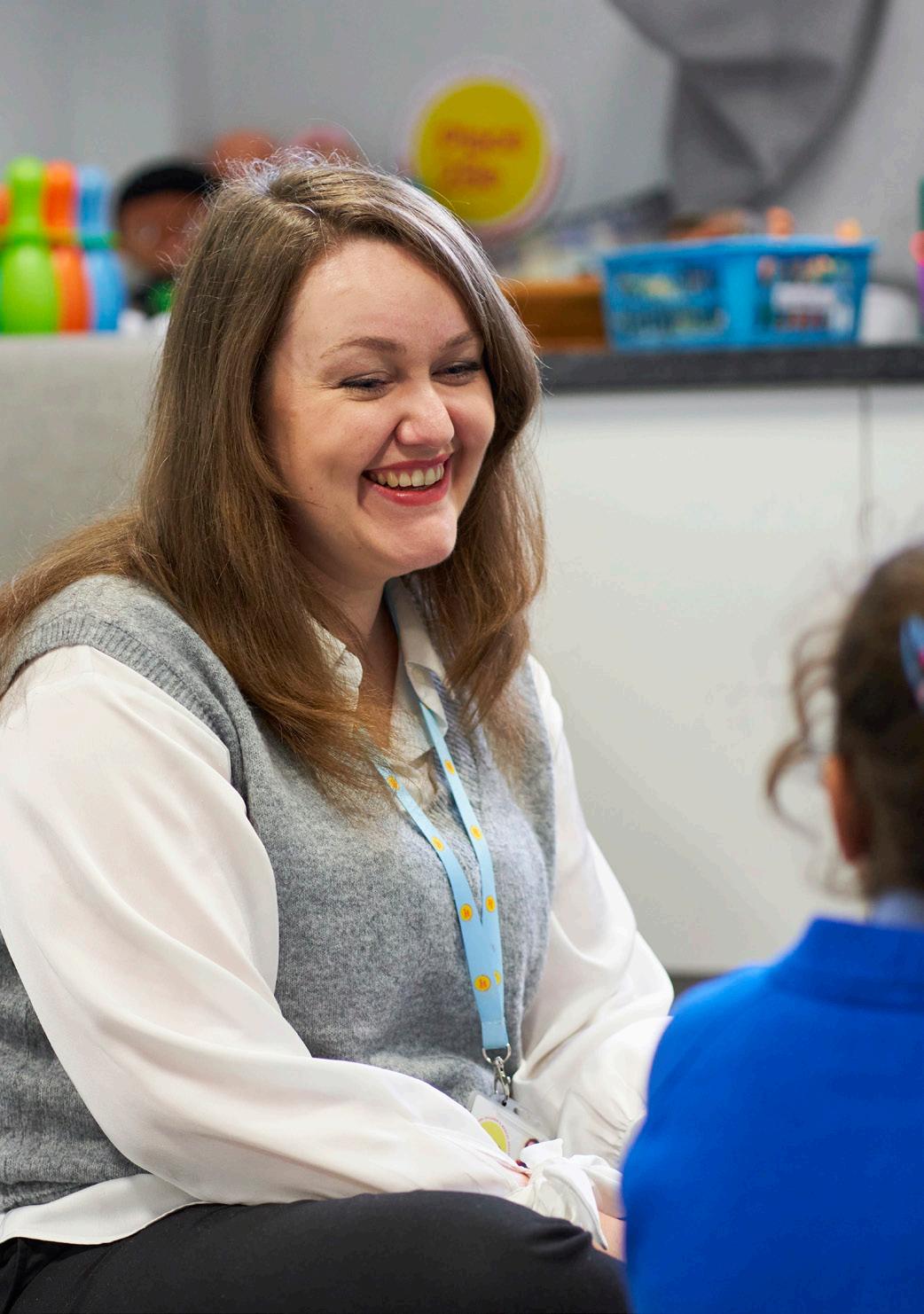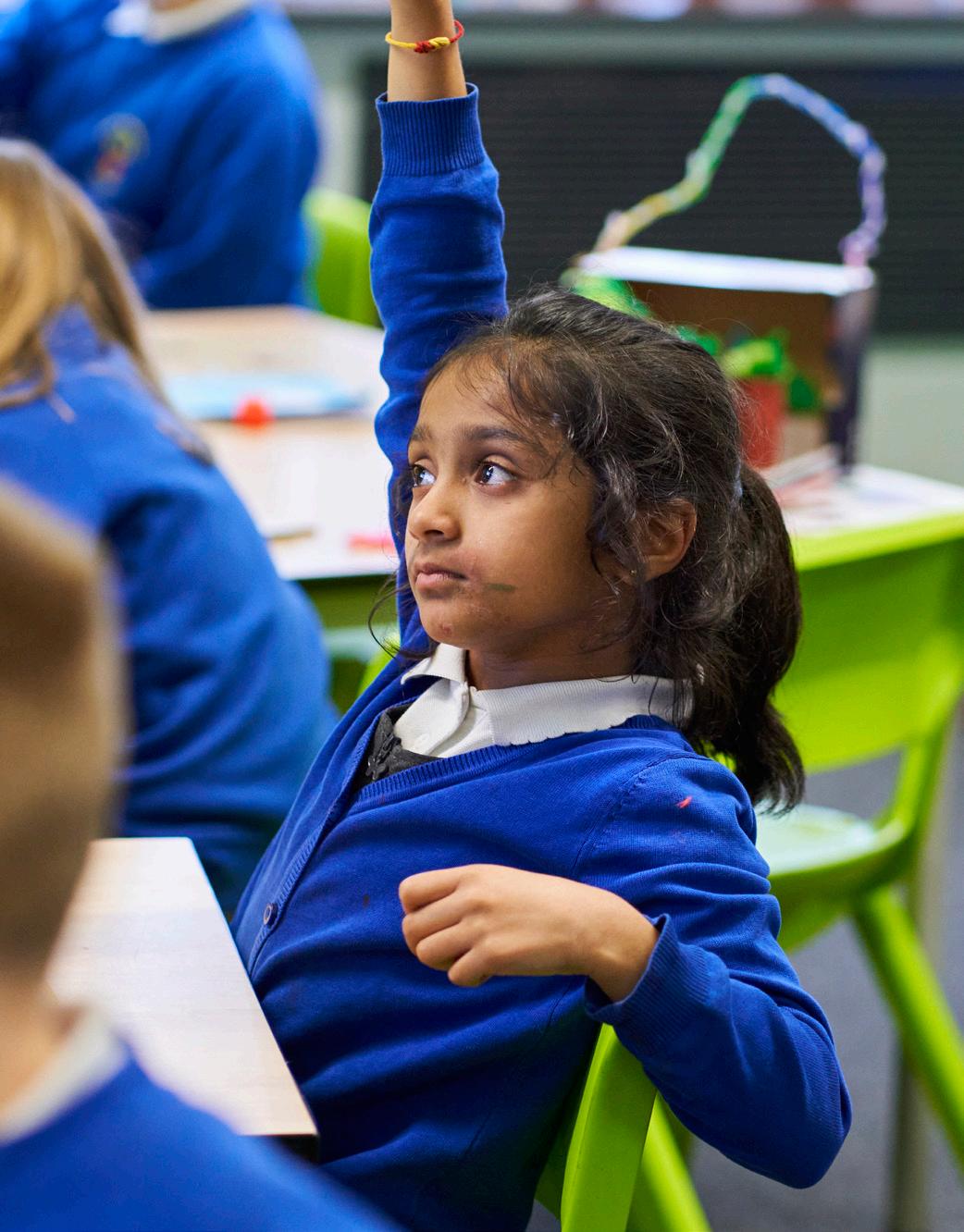
6 minute read
Our mission, vision and values
Place2Be provides expert mental health services in schools, guided by our mission, vision, values and approach.
Our mission is to improve the mental wellbeing and prospects of children, their families and school communities. We believe that no child or young person should have to face mental health problems alone. Our teams across the UK promote and enable good mental health and wellbeing, and support pupils to manage challenges in their lives.
Advertisement
Place2Be’s vision is for all children and young people to have the support they need to build lifelong coping skills and thrive.
We believe that how we approach our work is as important as the work itself. Our values shape everything we do:
• Compassion – We bring empathy and kindness to our work, to better understand and meet the needs of children and young people, colleagues and other stakeholders;
• Integrity – We demonstrate sound ethical values in all our work, and we are honest, transparent, courageous and authentic;
• Perseverance – We have the courage to continue in the face of adversity and do this with determination to find effective solutions;
• Creativity – We bring an open-minded approach and flexibility to our thinking and actions and enable others to do the same.
Overview of governance structures
Place2Be is governed by an independent board of Trustees.
This information is published on our website (bit.ly/3eo3yrJ ) The Board of Trustees has expert advice and guidance on methodologies, and five committees to advise its work. Short summaries of these committees follow.
• The Nominations Committee
To keep under review the structure, size and composition of the Trustee Board and the services of Board members, having regard to the skills needed and the skills of existing members.
• The Finance and Audit Committee
To advise the Trustees in relation to their responsibilities for financial management, audit, control, and reporting and to have oversight of the Charity’s financial activities. With input from the Technology Advisory Group, it also advises the Trustees in relation to IT strategy and implementation.
• The Practice and Quality Committee
To advise the Trustees in relation to the services delivered by the Charity and the quality and standards of clinical practice, administration and research that underpin the services provided by Place2Be. The Committee is further informed by our Research Advisory Group which provides expert advice and guidance on methodologies, analyses, ethics and dissemination of our findings.
• The Risk Committee
To ensure that risks across the organisation are effectively identified and managed; to oversee the co-ordination, development and implementation of the risk assessment and management process; to keep under review the systems and controls established by the Executive to mitigate those risks; and to prepare for the Trustees’ consideration a statement in the annual accounts.
• The People and Culture Committee
To consider any topic relevant to the HR Policies of Place2Be such as remuneration, Equality Diversity and Inclusion, people and capability.
Information that Place2Be collects
We collect information about our work to evaluate our effectiveness, improve our services and to inform the clinical decision making and monitoring of the service. Measuring impact has been central to Place2Be’s model since we were founded in 1994.
Our mental health professionals collect a variety of information in schools, including:
• Referral details
• The type of support children access
• Socio-demographic information about the pupils we support
• Validated measures of children’s mental health and attitudes towards school and learning
We use this information to evaluate our effectiveness and to improve and develop our services for children and young people.
Every year Place2Be reports on the:
• Demographic profile and number of children and young people we support
• Needs they have
• Types of intervention and numbers of sessions delivered
• Impact of our services on pupils’ wellbeing and learning
For more information about the data that Place2Be collects please see this web page - bit.ly/442eaFK
Exploring the quality of our services
Effectiveness and impact
We measure the impact on the mental health of children and young people after therapeutic interventions such as one-to-one counselling. We use two main validated measures to do this:
• The Strengths and Difficulties Questionnaire (SDQ)bit.ly/3r5uEw9
• The Young Person CORE - bit.ly/3xB1FSh
Using these measures, we can assess the mental health needs of the children and young people referred to our service before and after the Place2Be intervention.
We also measure the impact of our support on wider changes in the child’s life such as engagement in learning, ability to keep friendships, self-regulation and self-confidence, behaviour, attendance at school and impact on suspension from school, where relevant.
Benchmarking our service
As a member of the Child Outcomes Research Consortium (CORC), Place2Be receives annual reports benchmarking the outcomes of our services against other organisations (mostly NHS Child and Adolescent Mental Health services - CAMHS). According to the latest report (bit.ly/31Lg9mH ) in 2019, pupils who receive our one-to-one counselling demonstrate a higher level of improvement (Parent SDQ total difficulties) compared with other services.
Continuous clinical improvement
At Place2Be, we remain committed to continuously improving our services for children, young people and school communities.
At the heart of our Clinical Delivery Model is the assessment, formulation, child voice and review of our targeted interventions. Over the past four years, we have refined the range of universal and targeted interventions we offer to tailor support to meet the needs of each child.
Ensuring quality data collection is a priority in terms of reliability of the data and findings. Place2Be currently has between 66% and 84% pre and post paired collection from parents, teachers and young people. This compares extremely favourably with other children‘s mental health service providers. We continue to strive to improve these rates together with the impact we make by providing ongoing training, personal development and supervision for clinical staff.
Taking part in academic and external research
Place2Be has an independent Research Advisory Group (RAG) made up of academics and experts.
The group meets quarterly. It provides expert advice, supportive challenge and guidance on methodologies, analyses, ethics and dissemination of our findings. This gives Place2Be external validation of our research and evaluation.
Place2Be also works with research partners to take part in studies to assess the impact of our work. This includes working in partnership with the University of Cambridge where our Research Chair is based, along with a number of other academic institutions.
Together we strive to build the evidence base around the impact of ’a whole school’ and systemic approach to mental health services for childrenbit.ly/3xm4eax
Other key papers that Place2Be has coauthored –
Teachers concerns about pupil’s mental health in a cross-sectional survey of a population sample of British school children - bit.ly/3DT9IvU
What issues bring primary school children to counselling? A service evaluation of presenting issues across 297 schools - bit.ly/3cKSeWA
Impact of school-based mental health provision
‘Place2Be’ on child and adolescent mental health service (CAMHS) referrals: a longitudinal observational cohort study - bit.ly/3oFug5J
A UK school-based mental health service response to the Covid-19 pandemic - bit.ly/3Jx7IhG
From a child who IS a problem to a child who HAS a problem: fixed period school exclusions and mental health outcomes from routine outcome monitoring among children and young people attending school counselling - bit.ly/443d10x
Child Voice and Goals
At the end of an individual counselling intervention for children and young people we collect their views on how it went.
Among a sample of 3,000 children and young people who had accessed the service between January 2015 and May 2019, 96% reported positive experiences of their counselling.

In secondary schools in 2019/20, 85% of young people felt that their problems were ‘a bit better’ or ‘much better’ since attending Place2Be sessions.

Place2Be regularly gathers qualitative feedback from children and young people. We invite young people to participate in focus groups to inform our resources. This includes those for Children’s Mental Health Week, our campaign to empower, equip and give a voice to every child in the UK, which highlights the benefit of mental health support from a young age.
Examples of feedback from young people we support:
“I feel so lucky that my school has a Place2Be counsellor because I didn’t really know where to look for help on my own. There will always be young people facing issues such as exam stress, friendship problems, or anxiety, so I think having the Place2Be service is the best decision any school can make.”
“Place2Be helped me talk, so I stopped keeping things inside, I talk with my friends and mum. I know that I always can ask adults for support if I need to”.
“The sessions are fun. It helps me to concentrate in class more and I can sit still for longer”.
‘I feel calmer even though I was feeling worried after returning to school after lockdown, it wasn’t as bad as I thought. I don’t feel my angry feelings are as intense as they were before lockdown’.




